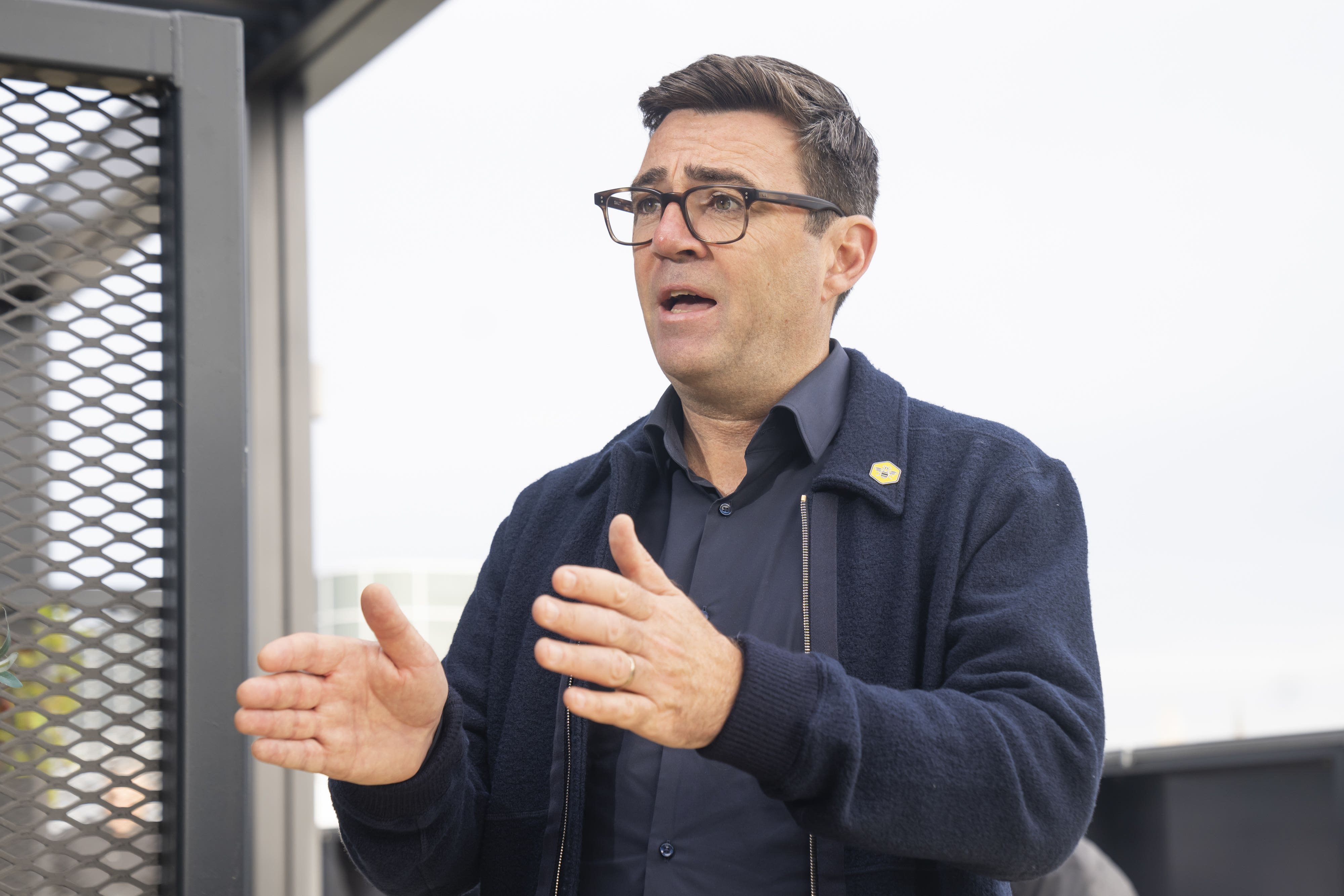Andy Burnham: Why the Manchester bombing persuaded me to call for Israel-Hamas ceasefire
Andy Burnham had only been mayor of Greater Manchester for two weeks when Manchester Arena was attacked – and says it has shaped not only how he views the war between Israel and Palestine, but how he feels the Labour Party should respond


On Friday evening, Greater Manchester’s political leaders issued a unanimous, cross-party statement on the Israeli-Palestinian crisis. It was not, as some suggested, an opportunistic move. It was instead the product of careful deliberation by 12 people doing our best to find a balanced and unifying way forward for our different communities.
For my part, it sought to reflect painful lessons I have learnt from the three previous times in my career I have had to react to heinous acts of terrorism: in 2001, 2005 and 2017.
The evil of terrorism comes not just from the shock, fear and revulsion it creates in the moment, but also from the reaction it seeks. It craves a response in kind. It is perpetrated by those who want permanent conflict between people and a never-ending cycle of violence. This is why the best responses to it are often those which feel counterintuitive and are clear-eyed about the terrorist’s trap.
I write this as though I have always believed it. The truth is I only came to understand it through experiencing wrong responses to terrorism.
If I take myself back to September 2001, I remember clearly the feeling of dread with which I returned to parliament after the summer break. It was prompted in part by the fear of how a gung-ho US president was going to respond to 9/11. While there remains a case for the removal of Saddam Hussein, I can’t justify the rage, the rhetoric, the haste with which it was done, nor the lack of a plan for the aftermath. Because of that, the US-UK action resulted in huge harm to innocent civilians and the sense of injustice recruited some to the terrorists’ cause. If the response to 9/11 was supposed to root out terrorism, it is hard not to conclude it did anything but.
In 2005, in very different circumstances, we saw shades of the same. While the government I was in was right to strengthen anti-terror laws, it was wrong to do so disproportionately on issues like detention without charge and create a public debate which played into the hands of those who sought to radicalise.
These experiences were very much at the front of my mind when, two weeks in as Mayor, I had to respond to the attack at the Manchester Arena. Sir Richard Leese and I agonised over whether we should hold a vigil. We decided that we should but on Sir Richard’s clear advice: “No political speeches”.
That was my introduction to a different way of responding to the Westminster way. I quickly saw it was a better way. The vigil created a space for the people of our city region to shape the response, rather than politicians, and the sense of togetherness we experienced then and since convinces me it was right.
This is not to say that we didn’t support the strongest possible action against those responsible for the attack. I remain proud of the efforts of Greater Manchester Police to bring the bomber’s brother to justice.
I firmly support any nation’s right to respond to terrorism to protect its citizens, including Israel’s. But what principles should guide it?
If the goal is to end terrorism, my experience tells me that action should be as targeted as possible and avoid any sense that it is disproportionate or indiscriminate. It should not be taken in haste but with a clear, understood plan for the aftermath. Wherever possible, politicians should create space for people on both sides to come together and lead the response.
I know the context in Israel is very different, having visited the region twice, and don’t wish to appear naive. I am always prepared to consider perspectives I have not understood before and will meet representatives of our Jewish community this week who have written to express concerns about our statement. But I am also clear that we must learn from the events we have lived through in the first 23 years of this millennium if we are ever to reverse the toxicity that characterises our times.
I think the Labour movement needs to learn from them too.
I know that knot many of our frontbenchers will have in their stomachs right now. I also know the job they have is so much harder than mine because they are doing it in the social media era.
Sometimes, the Labour movement has a tendency to make these moments all about ourselves. We must avoid that at all costs. In times like this, it is simply not possible quickly to arrive at a clear party line. People will have different views and it is healthy for those views to be aired.
My learning from 2003 is that this moment is an entirely different situation to normal politics. MPs’ feelings will change daily as they react to events, balance the views of constituents and try to formulate a settled view. Let’s not brand them as disloyal or as if they don’t care about innocent lives. Instead, let’s get behind the leader, the shadow cabinet and all our MPs and give them the support and space they need to face the defining challenge of our generation.
On Friday evening, Greater Manchester’s political leaders issued a unanimous, cross-party statement on the Israeli-Palestinian crisis. It was not, as some suggested, an opportunistic move. It was instead the product of careful deliberation by 12 people doing our best to find a balanced and unifying way forward for our different communities.
Andy Burnham is mayor of Greater Manchester






Join our commenting forum
Join thought-provoking conversations, follow other Independent readers and see their replies
23Comments